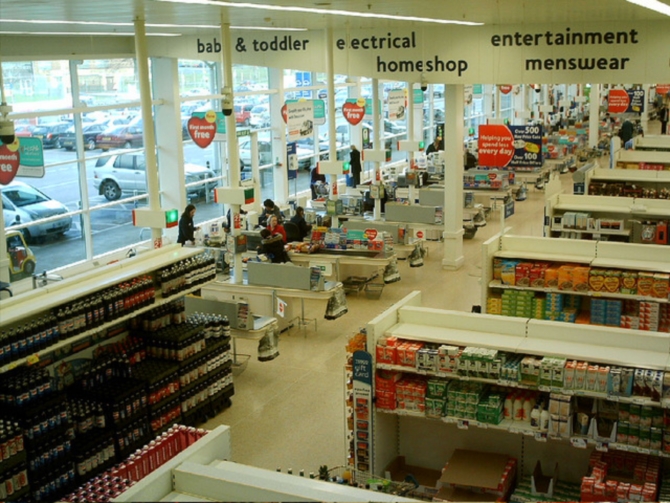The Big Four supermarkets have continued to step up their efforts in beating discounters such as Aldi and Lidl by dropping prices, offering a range of promotions and launching advertising campaigns based around the quality of goods on offer in store. However, Tesco’s latest move focuses purely on helping customers to make healthy choices, as it has announced that it will move sweets and chocolates away from checkouts in its smaller convenience store properties.

Although larger Tesco stores have not stocked confectionary in units by the checkout for around 20 years now, convenience stores continued to tempt customers in this way up until this month. Yet after conducting research into the issue, Tesco discovered that around two thirds of customers questioned believed that extending this initiative to all stores would help them make healthier choices.
Another aspect of the scheme will be to stop stacking confectionary items at a child’s eye level – news which parenting groups have welcomed as a “positive” step towards encouraging healthy eating in young people.
Chief executive of Tesco, Philip Clarke, said; “We all know how easy it is to be tempted by sugary snacks at the checkout, and we want to help our customers lead healthier lives.
“We’ve already removed billions of calories from our soft drinks, sandwiches and ready meal ranges, and we will continue to look for opportunities to take out more.”
Tesco’s commitment to healthy eating may be admirable, but it could be a strategy to keep up with the moves of rivals. According to a report conducted by consumer watchdog Which? in December 2012, both the Co-operative and Sainsbury’s have been running similar initiatives for some time now, though the ban is yet to be imposed in Sainsbury’s smaller stores.
Marks & Spencer, while not placing an outright ban on confectionary displays by checkouts, has a policy of moving sweets “with characters or designs likely to appeal to children” into a designated confectionary aisle away from customer pay points. Even discount competitor Lidl made the decision to remove sugary snacks from checkouts earlier this year, citing the same reasons as Tesco for this initiative.
Whether Tesco’s decision is a means of playing catch up with competitors in the healthy eating stakes, or based on a genuine concern for public health, it will regardless have a positive impact upon the diets of its customers. Public Health minister Jane Ellison agrees with this, claiming it will go a long way in tackling medical issues such as obesity and diabetes.
She continues; “This initiative will help people to make healthier choices, which all contributes to reducing the long term cost to our nation of obesity and ill health.”
Yet this move may be seen as something of a gamble for Tesco, which has recently announced its second consecutive year of falling profits. With fewer opportunities to “grab” consumers with last-minute impulse purchases, perhaps the cost of encouraging healthy eating will prove to be yet more financial concerns for the UK’s largest supermarket chain.
Previous Post
Auckland Supply and Demand “Relatively well Matched”